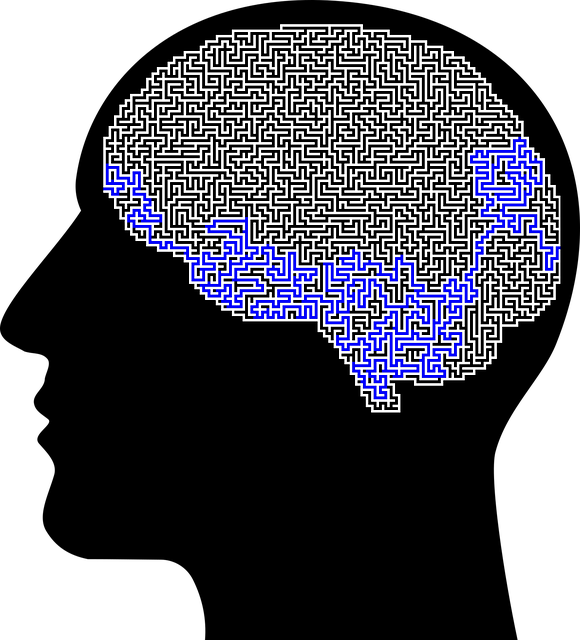Crisis intervention is a vital component of mental health support, offering immediate assistance during distressing times, especially for those seeking Highlands Ranch Anger Management Therapy. This approach focuses on both short-term relief and long-term coping mechanisms, such as emotional regulation and empathy building. By combining individual therapy, group support, and community outreach, the holistic approach of Highlands Ranch Anger Management Therapy enhances resilience and promotes calm responses during crises. Early detection of warning signs, like behavioral changes or explosive outbursts, allows for timely intervention, including trauma support services or burnout prevention strategies. Evidence-based strategies, such as cognitive behavioral therapy (CBT) and mindfulness techniques, empower individuals to manage their emotional well-being and navigate challenging circumstances constructively, leading to improved mental wellness outcomes. Post-crisis care and prevention are crucial for promoting resilience and long-term mental health through sustainable strategies tailored to diverse populations.
In today’s fast-paced world, crisis intervention strategies are a cornerstone of mental health support. This comprehensive guide explores various facets of effective crisis management, from understanding the basics of crisis intervention to specific techniques like Highlands Ranch Anger Management Therapy. We delve into identifying warning signs for early detection, evidence-based assessment and implementation strategies, and post-crisis care aimed at building resilience. By equipping readers with these tools, we aim to enhance their ability to navigate and de-escalate crises, fostering long-term wellbeing.
- Understanding Crisis Intervention: A Cornerstone of Mental Health Support
- The Role of Highlands Ranch Anger Management Therapy in De-escalating Crises
- Identifying Warning Signs: Early Detection for Effective Interventions
- Evidence-Based Strategies: From Assessment to Implementation
- Post-Crisis Care and Prevention: Building Resilience and Long-term Wellbeing
Understanding Crisis Intervention: A Cornerstone of Mental Health Support

Crisis intervention is a vital cornerstone in the realm of mental health support, offering immediate and targeted assistance during moments of intense distress or upheaval. It involves a range of strategies aimed at stabilizing individuals, helping them navigate challenging situations, and fostering resilience. This process is particularly crucial for those dealing with anger management issues, such as those seeking Highlands Ranch Anger Management Therapy. By providing swift intervention, mental health professionals can prevent escalation and promote positive outcomes.
Effective crisis intervention focuses not only on addressing the immediate crisis but also on building long-term coping mechanisms. It involves skills like emotional regulation and empathy building strategies, which are essential components of any comprehensive mental wellness program. The Mental Wellness Podcast Series Production often highlights these techniques, emphasizing their role in helping individuals process and manage intense emotions during a crisis while cultivating better emotional well-being over time.
The Role of Highlands Ranch Anger Management Therapy in De-escalating Crises

Highlands Ranch Anger Management Therapy plays a pivotal role in crisis intervention by providing effective strategies to de-escalate intense emotions and prevent destructive behaviors. This specialized therapy focuses on identifying triggers, teaching emotional regulation skills, and fostering healthy communication patterns. Through evidence-based techniques, individuals learn to manage anger constructively, reducing the risk of crises escalating.
The program’s holistic approach integrates community outreach initiatives and mental wellness journaling exercises to enhance resilience building. By combining individual therapy with group support, Highlands Ranch Anger Management Therapy creates a network of resources that empowers clients to navigate challenging situations effectively. This comprehensive guidance is instrumental in fostering a sense of calm, empowering individuals to respond thoughtfully rather than reacting impulsively during crises.
Identifying Warning Signs: Early Detection for Effective Interventions

Recognizing warning signs is a critical aspect of crisis intervention, enabling professionals to provide timely and effective support. Individuals experiencing distress often exhibit behavioral changes or display distinct patterns that can serve as early indicators of impending crises. These signs may include sudden alterations in mood, increased irritability or aggression, withdrawal from social interactions, or significant shifts in routine and self-care practices. For instance, a client in Highlands Ranch Anger Management Therapy might present with recurring explosive outbursts, indicative of underlying anger management issues that require immediate attention.
Early detection plays a pivotal role in mitigating potential harm and facilitating successful interventions. By being vigilant for these warning signs, trauma support services can be proactively offered to individuals showing symptoms of distress or burnout prevention strategies can be implemented before exhaustion sets in. Encouraging clients to adopt self-care routine development for better mental health is another vital step in crisis intervention, ensuring that individuals have the tools and resources needed to manage their well-being effectively.
Evidence-Based Strategies: From Assessment to Implementation

In the realm of crisis intervention, evidence-based strategies play a pivotal role in assessing and addressing high-stress situations effectively. These strategies are rooted in scientific research and proven to be highly effective in various settings, including Highlands Ranch Anger Management Therapy programs. The initial step involves thorough assessment to identify the root causes of distress, be it anger management issues or other mental health concerns. Once these triggers are understood, interventionists can employ tailored techniques such as coping skills development and positive thinking exercises to help individuals navigate challenging situations constructively.
Implementing evidence-based practices ensures that participants in mental wellness coaching programs gain practical tools for managing crises. By fostering positive thinking and promoting healthy coping mechanisms, these strategies empower individuals to take charge of their emotional well-being. The process encourages active participation, enabling clients to develop resilience and adapt effectively to stressful circumstances, ultimately contributing to improved mental wellness outcomes.
Post-Crisis Care and Prevention: Building Resilience and Long-term Wellbeing

Post-crisis care and prevention play a crucial role in fostering resilience and long-term wellbeing among individuals who have experienced traumatic events. After an incident, it’s essential to provide immediate support and then shift towards sustainable strategies that address underlying mental health concerns. This includes highland ranch anger management therapy, which helps individuals process their emotions effectively and develop healthy coping mechanisms. By integrating evidence-based practices, such as cognitive behavioral therapy (CBT), mindfulness techniques, and emotional regulation skills training, healthcare providers can significantly enhance recovery outcomes.
Building resilience involves not only managing acute symptoms but also mitigating the impact of future stressors. Mental illness stigma reduction efforts are vital in creating supportive environments where individuals feel comfortable seeking help without fear of judgment. Healthcare provider cultural competency training ensures that professionals are equipped to offer empathetic care tailored to diverse populations, considering cultural nuances and beliefs. Additionally, risk assessment for mental health professionals is essential to identify potential triggers and implement proactive measures, thereby enhancing client safety and the overall effectiveness of post-crisis interventions.
In light of the above discussions, crisis intervention strategies play a pivotal role in mental health support. From understanding the cornerstone concepts to implementing evidence-based practices like Highlands Ranch Anger Management Therapy, early detection, and post-crisis care, each element contributes to building resilience and long-term wellbeing. By recognizing warning signs and adopting effective interventions, we can navigate crises more successfully, ensuring individuals receive the necessary guidance and care they deserve.









